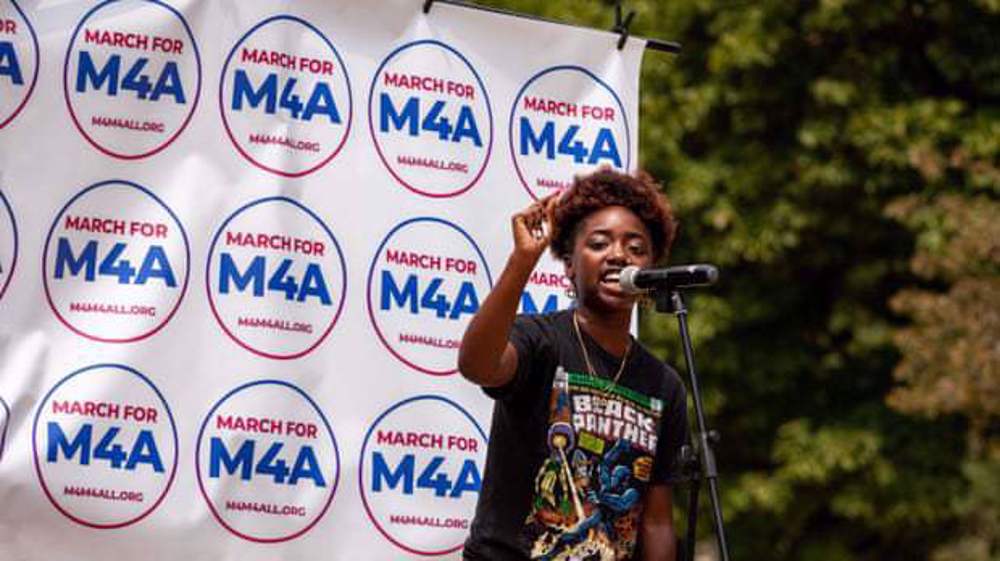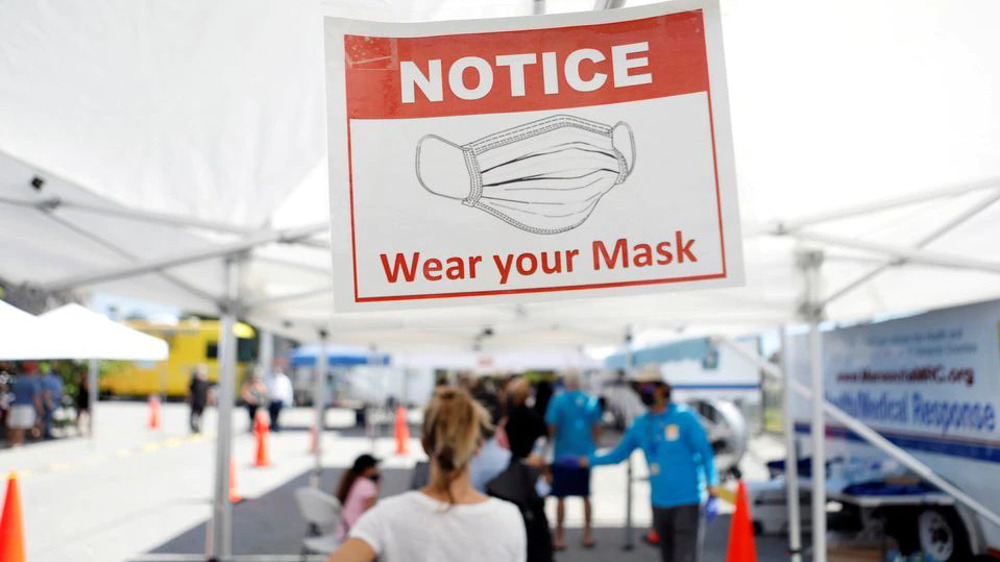Pandemic profits: Top US health insurers make billions in second quarter
Five of America’s largest health insurers reported more than $11bn in profits in the second quarter – a decline from the same period last year when the Covid-19 pandemic helped drive sky-high profits.
The rise in profits last year was a result of people in the US seeking less medical care because of fears about Covid-19 while still paying for health insurance. Companies warned pent-up demand could have an effect on their bottom line, but medical use still has not returned to normal rates.
The scrutiny insurers faced last year after reporting such high profits – in some cases doubling the amount they made the year before – has largely faded away.
The House Energy and Committee launched an investigation into insurers last August, but the results of that have not been made public.
In a November article for the Journal of the American Medical Association (JAMA), Dr Joshua Sharfstein at Johns Hopkins Bloomberg School of Public Health and others called for part of the windfall to be allocated to other parts of the health system, such as beleaguered public health departments which couldn’t afford to contact trace.
“A lot of public health departments are really still struggling to find funds for contact tracing, testing even when the local insurer was sitting on huge profits,” Sharfstein said. “I think part of the dysfunction of the US response was the fact that money was accumulating in one part of the healthcare universe while it was desperately needed in another part.”
The American Rescue Plan and other government funding initiatives have helped fill some of the gaps in public health funding, but Sharfstein, the public health school’s vice-dean for public health practice and community engagement, said it would have been better recoup some of the insurer profits to prop up these systems instead of using taxpayer money.
The article also advised regulators to seek greater transparency on how the money was used, but other than the congressional investigation there has been little action on that front.
At the same time, Americans have borne the brunt of the financial crush from the pandemic and resulting recession.
In a survey conducted between March and June, 36% of adults with health insurance said they had a medical bill problem or medical debt, according to a Commonwealth published last month. People who had Covid-19, lost income or lost their employer-sponsored health insurance had higher rates of medical bill and debt problems than those not affected by those issues.
Consumers will see some of the profits from last year. Under the Affordable Care Act, there are limits on how much insurers can spend on profits and administration. Money in excess of that limit is paid to customers in rebates. The Kaiser Family Foundation (KFF) estimated in April that insurers would be issuing about $2.1bn in rebates this year.
There is still uncertainty for health insurers about what could come this year, especially with the Delta variant driving a rise in cases across the US. But in the second quarter earnings reports, they showed little evidence of it affecting their bottom line.
UnitedHealth Group reported $4.37bn in profit and increased its earnings outlook after beating expectations for profit and revenue. Anthem reported $1.8bn in profit and said Covid-19 variants and slowing vaccination rates added uncertainty to the second half of the year, but still raised its earnings forecast.
Humana, which provides coverage to a large share of seniors, had the most dramatic drop in earnings compared to the same period the year before – with a 68.7% drop to $588m. Executives acknowledged uncertainties with the pandemic, but said they expect 2022 to be a more normal year.
These results echoed a broad review of health insurer filings by KFF, which found that most insurers expect health use to return to the levels it was at before the pandemic and aren’t factoring additional costs into next year’s premiums, or the cost consumers pay each month for healthcare. Georgetown University’s Center on Health Insurance Reform (CHIR), also analyzed early filings and found that most insurers consider the pandemic to be “a one-time event, with limited, if any, impact on their 2022 claims costs.”
United, Anthem and Humana posted their results in July, but the insurers who shared their earnings this week, when there was more public concern about the Delta variant, saw their stock prices fall after sharing their results.
This is in part because one of the companies, CVS Health, also announced it would raise wages for employees at its 9,900 retail locations. The health giant reported $2.78bn in profits on Tuesday and said starting next summer it would raise wages to $15 an hour – at a cost of $600m over three years.
Cigna also beat expectations, with $1.47bn in profit, but its stocks fell after the company reported costs for providing medical services were starting to recover.
(Source: The Guardian)
Pezeshkian calls recent riots in Iran part of ‘failed’ US-Israeli war
UK ‘preemptively’ discharges pro-Palestine hunger strikers recovering in hospital
US dollar falls in Iran amid rising export currency supply
Trump’s ‘Board of Peace’ for Gaza an extension of Israeli occupation: Ex-UN rights chief
IMF expects Iran’s economy to grow by 1.1% in 2026
Over 9,350 Palestinians held in Israeli prisons as of early January: Rights groups
VIDEO | Press TV's news headlines
Israel plans to seize Palestinian-owned land in occupied East al-Quds













 This makes it easy to access the Press TV website
This makes it easy to access the Press TV website